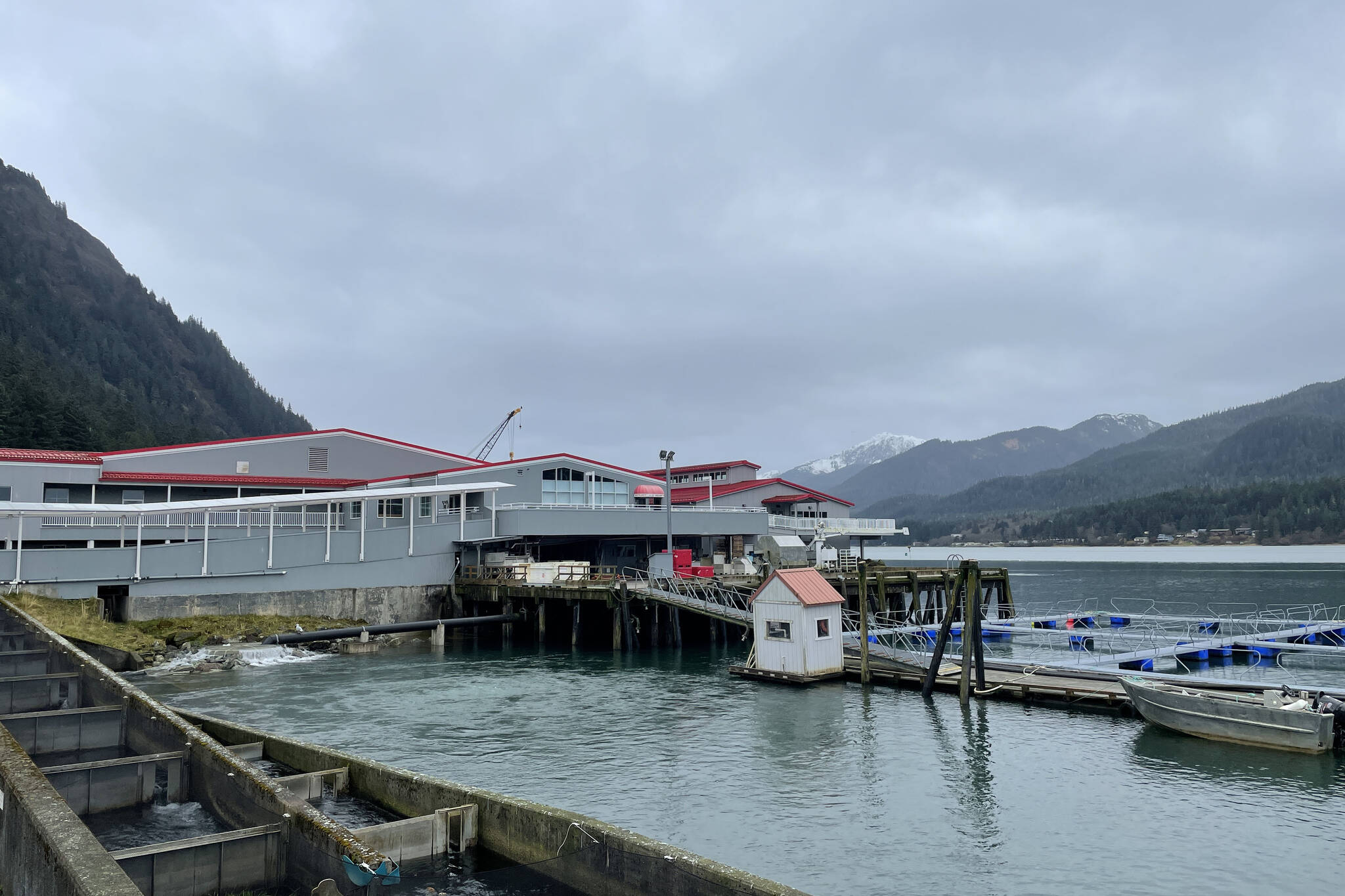This year marked a better season for Douglas Island Pink and Chum Inc. after a lean 2020 and damage to the hatchery’s freshwater supply by a landslide in December.
“It’s been a pretty good season,” said Brock Meredith, operations manager for DIPAC. “We got 130% of our forecast on chums. We got 1.4 million total chum return.”
The hatchery’s numbers aren’t quite where they want it to be, Meredith said, but it’s trending in the right direction.
“We’re still not up to what we’d like,” Meredith said. “We didn’t fully make cost recovery, but we were closer than before.”
[As pandemic recedes, preventive care returns]
The fish are always influenced heavily by conditions in the Gulf of Alaska, where they spend much of their life. It can be difficult to accurately forecast their returns, Meredith said.
“Forecasting has been a tough one the last couple of years. There had been quite a shift in the age composition of the returning fish,” Meredith said. “Cohos are in particular difficult to forecast. They only spend one full year out in the gulf. With chinook and chum you have numerous age classes returning.”
For the Cohos this year, Meredith said, about 96% of the fish forecasted returned.
“We were being pretty conservative in our forecasts. There’s a lot of indicators that the conditions in the Gulf of Alaska where the fish spend most of their life is improving,” Meredith said. “Once we let em go, it’s out of our hands.”
For a number of years, a mass of warm water called “the blob” affected the returns, reducing productivity in the gulf, Meredith said.
“There’s a mass of nutrients and plankton that (the National Oceanic and Atmospheric Administration) is seeing out there that can only be tied to colder temperatures,” Meredith said. “It can only mean better things for us and better things for people who depend on our returning salmon.”
Break in the line
A December 2020 landslide brought on by heavy rains ruptured the freshwater feed line that supplies DIPAC. The break was repaired more quickly than expected by Alaska Electric Light and Power, Meredith said.
“They got that pipe repaired a lot sooner than they thought they might. Our chums, which is what pays our bills, fared very well,” Meredith said. “AEL&P has got a plan to, within the next five years, replace that upper penstock.”
Hard work by DIPAC staff salvaged what could have been a dire situation, Meredith said, but there will still be secondary effects that appear over the next few years.
“That’s going to put a big dent in the returns of kings and cohos next year, and chinook in 2023,” Meredith said. “We had to release most of those to return early, and we don’t expect many of those to return.”
However, things are generally trending positively for DIPAC, Meredith said.
“We won’t come out with our forecast for another month or so, but I would bet money it’ll be considerably better. Not returning to what it was 5-6 years ago, but considerably better,” Meredith said. “Things are looking up at DIPAC.”
• Contact reporter Michael S. Lockett at 757-621-1197 or mlockett@juneauempire.com.

